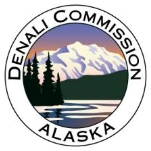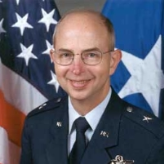A pet project of the late former Sen. Ted Stevens (R-Alaska), the Denali Commission is a federal agency modeled on the Appalachian Regional Commission, operating as a federal-state partnership, and working in tandem as well with tribal and local governments, and the private sector, to aim to improve the access, effectiveness, and efficiency of services and facilities throughout Alaska. Focusing primarily on the state’s remotest communities, Denali Commission programs so far have extended into more than 200 communities, on issues including domestic violence; elder and teacher housing; energy, health, and job training services; and transportation infrastructure deficiencies.
The Denali Commission had at one point come under scrutiny, including concern that multiple federal programs were funding similar Alaska development activities, and that some of its budget requests did not explain how funding levels were impacting performance. Also, Senator Stevens, who was behind the Commission’s creation, and had been able to continually keep it funded with federal money, was convicted of financial improprieties, though the conviction was thrown out due to prosecutorial misconduct. He died in a plane crash in August 2010. Some believe the future of the Denali Commission may be at risk, while its budget has withstood continuing cuts.
The Denali Commission was created with the passage of the October 21, 1998, Denali Act. The Act mandated the Commission to solve infrastructure and economic development challenges in the most remote communities of Alaska by reducing administrative and overhead costs while at the same time providing targeted job-training programs and modernizing communication, energy, health, and transportation systems.
The Denali Commission is made up of seven people appointed by the Secretary of Commerce:
- The Federal Co-Chairperson, who is chosen by the Secretary of Commerce, from nominees submitted by the President pro tempore of the Senate and the Speaker of the House of Representatives.
- The State Co-Chairperson, who is the Governor of Alaska, or someone selected from nominations by the Governor of Alaska.
- The President of the University of Alaska, or someone selected from nominations by the President of the University of Alaska.
- The President of the Alaska Municipal League, or someone selected from nominations by the President of the Alaska Municipal League.
- The President of the Alaska Federation of Natives, or someone selected from nominations by the President of the Alaska Federation of Natives.
- The Executive President of the Alaska State AFL-CIO, or someone selected from nominations by the President of the Alaska AFL-CIO.
- The President of the Associated General Contractors of Alaska, or someone selected from nominations by the President of the Associated General Contractors of Alaska.
Among their responsibilities:
- Develop annual work plans, to be reviewed and accepted or rejected by the Secretary of Commerce, which solicit Alaska project proposals that provide for rural and infrastructure development and job training.
- Systemize planning and coordination on a local, regional, and statewide basis in an effort to achieve the most effective results from investments in infrastructure, economic development, and training.
- Facilitate the creation of job-training programs specifically applicable to future work on the infrastructure the Commission is mandated to improve; encourage use of employees and businesses that are residents of Alaska on both projects the Commission is directly involved with and ones they’re not; and seek out new ways of increasing the area’s employment and earnings.
- Further develop a safe and reliable energy infrastructure that will efficiently and financially prudently reach the most remote areas of the state, utilizing renewable and alternative energy whenever possible, including additional hydroelectric facilities, geothermal power plants, biomass boilers, and diesel-wind power generation systems, and provide for the repair or replacement of any remaining local bulk fuel storage tanks that are not in compliance with applicable federal law.
- Plan, construct and equip health facilities where there still are none, or too few, or their quality is inadequate, including mental health and drug and alcohol treatment centers, and domestic violence shelters, and continue developing and improving nutrition, child care, and obesity prevention and control programs.
- Help rural teachers and seniors find safe, affordable housing.
- Continue addressing surface transportation needs including projects for the construction of essential access routes and facilities necessary to connect still-isolated rural communities to a road system.
- Keep seeking solutions to the growing solid-waste problem in the state, from the smallest clearing litter angle to locating the best ways and places to dispose of junk cars and military waste.
- Continue to grow the Multi-Use Facility Program consolidating compatible essential community services, eliminating duplication of services, and increasing the efficiency with which services are delivered.
- Award grants and loans, and facilitate private sector investments, to promote economic development.
Detailed Information on the Denali Commission Assessment
From the Web Site of the Denali Commission
Alaska Rural Directory of Resources (pdf)
Interactive Project Map (pdf)
In FY 2011, the Denali Commission generated $29.34 million from a variety of U.S. government funding sources, and applied those funds toward projects through three areas:
Energy Program $20,901,043
Transportation Program $4,740,500
Administration $2,831,998
George J. Cannelos
Cannelos, who was appointed by U.S. Secretary of Commerce Carlos M. Gutierrez in September 2005, received a BA in Economics from Lewis and Clark College in Portland, Oregon, in 1969. After that he joined the U.S. Navy, serving as a flight officer in the RA-5C “Vigilante” and then deploying aboard USS America in 1972, flying more than 75 reconnaissance missions over North Vietnam and Laos. Then in 1975 Canellos received an MA of Regional Planning from the University of Pennsylvania in Philadelphia, and after that began his career in Alaska with the Department of Community & Regional Affairs. In 1978, he also began serving in the Air National Guard, flying throughout Alaska, the Pacific, and around the world on training and operational missions and deployments. In 1987 he graduated from Air Command and Staff College by correspondence and in 1990 graduated from Air War College also by correspondence. Then in 1992 Canellos served as Mission Commander for Alaskan aircrew and maintenance as part of a Task Relief force into Southern and Central Somalia. In 1998 he became a graduate of Naval War College - National Security Decision Making, Strategy and Policy, Newport, Rhode Island, and capped a 32-year year military career as a Brigadier General commanding the Alaska Air National Guard. Canellos has also served as Chief Operating Officer for Chugach Alaska, General Manager for Bethel Native Corporation, President and Chief Operating Officer of KPB Architects, and Director of the Heritage Land Bank for the Municipality of Anchorage.
Karen Rehfeld
Karen Rehfeld was appointed to sit on the Denali Commission by Alaska Governor Sarah Palin in March 2007. Rehfeld received a BA in Political Science from the University of Idaho, Moscow, in 1976. She served as Special Assistant to Alaska Governor Jay Hammond, and as the Executive Director for the Reapportionment Board for the 1981 reapportionment plan for state election districts. After that worked as an administrator for Elgee & Rehfeld, Certified Public Accountants, and then as a private consultant and fiscal analyst to the offices of the governor, lieutenant governor, and various departments of state government. Rehfeld next served as Administrative Services Director for Alaska’s Department of Education and Early Development, and in June 2003 she was promoted to Deputy Commissioner of the Department of Education & Early Development. Rehfeld currently is Alaska’s Director of the Office of Management and Budget.
Rehfeld comes from a political family. Her father, the late Bob Ward, was Alaska’s Commissioner of Administration, Secretary of State, Lieutenant Governor, and Commissioner of Transportation.
Jeff Staser
1998-2005
- Table of Contents
- Overview
- History
- What it Does
- Where Does the Money Go
- Controversies
- Suggested Reforms
- Comments
- Leave a comment



- Latest News
- D.C. Public Schools will Teach all Second-Graders to Ride a Bike
- New Rule in Germany Limits Sales of Sex-Themed E-Books to 10pm to 6am
- What Happened to the 6-Year-Old Tibetan Boy the Chinese Government Kidnapped 20 Years Ago?
- U.S. Ambassador to Turkey Photoshops his Hair Color to Mock Turkish Mayor
- Mystery Artist Calls Attention to Unfixed Potholes by Drawing Penises around Them
A pet project of the late former Sen. Ted Stevens (R-Alaska), the Denali Commission is a federal agency modeled on the Appalachian Regional Commission, operating as a federal-state partnership, and working in tandem as well with tribal and local governments, and the private sector, to aim to improve the access, effectiveness, and efficiency of services and facilities throughout Alaska. Focusing primarily on the state’s remotest communities, Denali Commission programs so far have extended into more than 200 communities, on issues including domestic violence; elder and teacher housing; energy, health, and job training services; and transportation infrastructure deficiencies.
The Denali Commission had at one point come under scrutiny, including concern that multiple federal programs were funding similar Alaska development activities, and that some of its budget requests did not explain how funding levels were impacting performance. Also, Senator Stevens, who was behind the Commission’s creation, and had been able to continually keep it funded with federal money, was convicted of financial improprieties, though the conviction was thrown out due to prosecutorial misconduct. He died in a plane crash in August 2010. Some believe the future of the Denali Commission may be at risk, while its budget has withstood continuing cuts.
The Denali Commission was created with the passage of the October 21, 1998, Denali Act. The Act mandated the Commission to solve infrastructure and economic development challenges in the most remote communities of Alaska by reducing administrative and overhead costs while at the same time providing targeted job-training programs and modernizing communication, energy, health, and transportation systems.
The Denali Commission is made up of seven people appointed by the Secretary of Commerce:
- The Federal Co-Chairperson, who is chosen by the Secretary of Commerce, from nominees submitted by the President pro tempore of the Senate and the Speaker of the House of Representatives.
- The State Co-Chairperson, who is the Governor of Alaska, or someone selected from nominations by the Governor of Alaska.
- The President of the University of Alaska, or someone selected from nominations by the President of the University of Alaska.
- The President of the Alaska Municipal League, or someone selected from nominations by the President of the Alaska Municipal League.
- The President of the Alaska Federation of Natives, or someone selected from nominations by the President of the Alaska Federation of Natives.
- The Executive President of the Alaska State AFL-CIO, or someone selected from nominations by the President of the Alaska AFL-CIO.
- The President of the Associated General Contractors of Alaska, or someone selected from nominations by the President of the Associated General Contractors of Alaska.
Among their responsibilities:
- Develop annual work plans, to be reviewed and accepted or rejected by the Secretary of Commerce, which solicit Alaska project proposals that provide for rural and infrastructure development and job training.
- Systemize planning and coordination on a local, regional, and statewide basis in an effort to achieve the most effective results from investments in infrastructure, economic development, and training.
- Facilitate the creation of job-training programs specifically applicable to future work on the infrastructure the Commission is mandated to improve; encourage use of employees and businesses that are residents of Alaska on both projects the Commission is directly involved with and ones they’re not; and seek out new ways of increasing the area’s employment and earnings.
- Further develop a safe and reliable energy infrastructure that will efficiently and financially prudently reach the most remote areas of the state, utilizing renewable and alternative energy whenever possible, including additional hydroelectric facilities, geothermal power plants, biomass boilers, and diesel-wind power generation systems, and provide for the repair or replacement of any remaining local bulk fuel storage tanks that are not in compliance with applicable federal law.
- Plan, construct and equip health facilities where there still are none, or too few, or their quality is inadequate, including mental health and drug and alcohol treatment centers, and domestic violence shelters, and continue developing and improving nutrition, child care, and obesity prevention and control programs.
- Help rural teachers and seniors find safe, affordable housing.
- Continue addressing surface transportation needs including projects for the construction of essential access routes and facilities necessary to connect still-isolated rural communities to a road system.
- Keep seeking solutions to the growing solid-waste problem in the state, from the smallest clearing litter angle to locating the best ways and places to dispose of junk cars and military waste.
- Continue to grow the Multi-Use Facility Program consolidating compatible essential community services, eliminating duplication of services, and increasing the efficiency with which services are delivered.
- Award grants and loans, and facilitate private sector investments, to promote economic development.
Detailed Information on the Denali Commission Assessment
From the Web Site of the Denali Commission
Alaska Rural Directory of Resources (pdf)
Interactive Project Map (pdf)
In FY 2011, the Denali Commission generated $29.34 million from a variety of U.S. government funding sources, and applied those funds toward projects through three areas:
Energy Program $20,901,043
Transportation Program $4,740,500
Administration $2,831,998
George J. Cannelos
Cannelos, who was appointed by U.S. Secretary of Commerce Carlos M. Gutierrez in September 2005, received a BA in Economics from Lewis and Clark College in Portland, Oregon, in 1969. After that he joined the U.S. Navy, serving as a flight officer in the RA-5C “Vigilante” and then deploying aboard USS America in 1972, flying more than 75 reconnaissance missions over North Vietnam and Laos. Then in 1975 Canellos received an MA of Regional Planning from the University of Pennsylvania in Philadelphia, and after that began his career in Alaska with the Department of Community & Regional Affairs. In 1978, he also began serving in the Air National Guard, flying throughout Alaska, the Pacific, and around the world on training and operational missions and deployments. In 1987 he graduated from Air Command and Staff College by correspondence and in 1990 graduated from Air War College also by correspondence. Then in 1992 Canellos served as Mission Commander for Alaskan aircrew and maintenance as part of a Task Relief force into Southern and Central Somalia. In 1998 he became a graduate of Naval War College - National Security Decision Making, Strategy and Policy, Newport, Rhode Island, and capped a 32-year year military career as a Brigadier General commanding the Alaska Air National Guard. Canellos has also served as Chief Operating Officer for Chugach Alaska, General Manager for Bethel Native Corporation, President and Chief Operating Officer of KPB Architects, and Director of the Heritage Land Bank for the Municipality of Anchorage.
Karen Rehfeld
Karen Rehfeld was appointed to sit on the Denali Commission by Alaska Governor Sarah Palin in March 2007. Rehfeld received a BA in Political Science from the University of Idaho, Moscow, in 1976. She served as Special Assistant to Alaska Governor Jay Hammond, and as the Executive Director for the Reapportionment Board for the 1981 reapportionment plan for state election districts. After that worked as an administrator for Elgee & Rehfeld, Certified Public Accountants, and then as a private consultant and fiscal analyst to the offices of the governor, lieutenant governor, and various departments of state government. Rehfeld next served as Administrative Services Director for Alaska’s Department of Education and Early Development, and in June 2003 she was promoted to Deputy Commissioner of the Department of Education & Early Development. Rehfeld currently is Alaska’s Director of the Office of Management and Budget.
Rehfeld comes from a political family. Her father, the late Bob Ward, was Alaska’s Commissioner of Administration, Secretary of State, Lieutenant Governor, and Commissioner of Transportation.
Jeff Staser
1998-2005
Comments



- Latest News
- D.C. Public Schools will Teach all Second-Graders to Ride a Bike
- New Rule in Germany Limits Sales of Sex-Themed E-Books to 10pm to 6am
- What Happened to the 6-Year-Old Tibetan Boy the Chinese Government Kidnapped 20 Years Ago?
- U.S. Ambassador to Turkey Photoshops his Hair Color to Mock Turkish Mayor
- Mystery Artist Calls Attention to Unfixed Potholes by Drawing Penises around Them





Comments